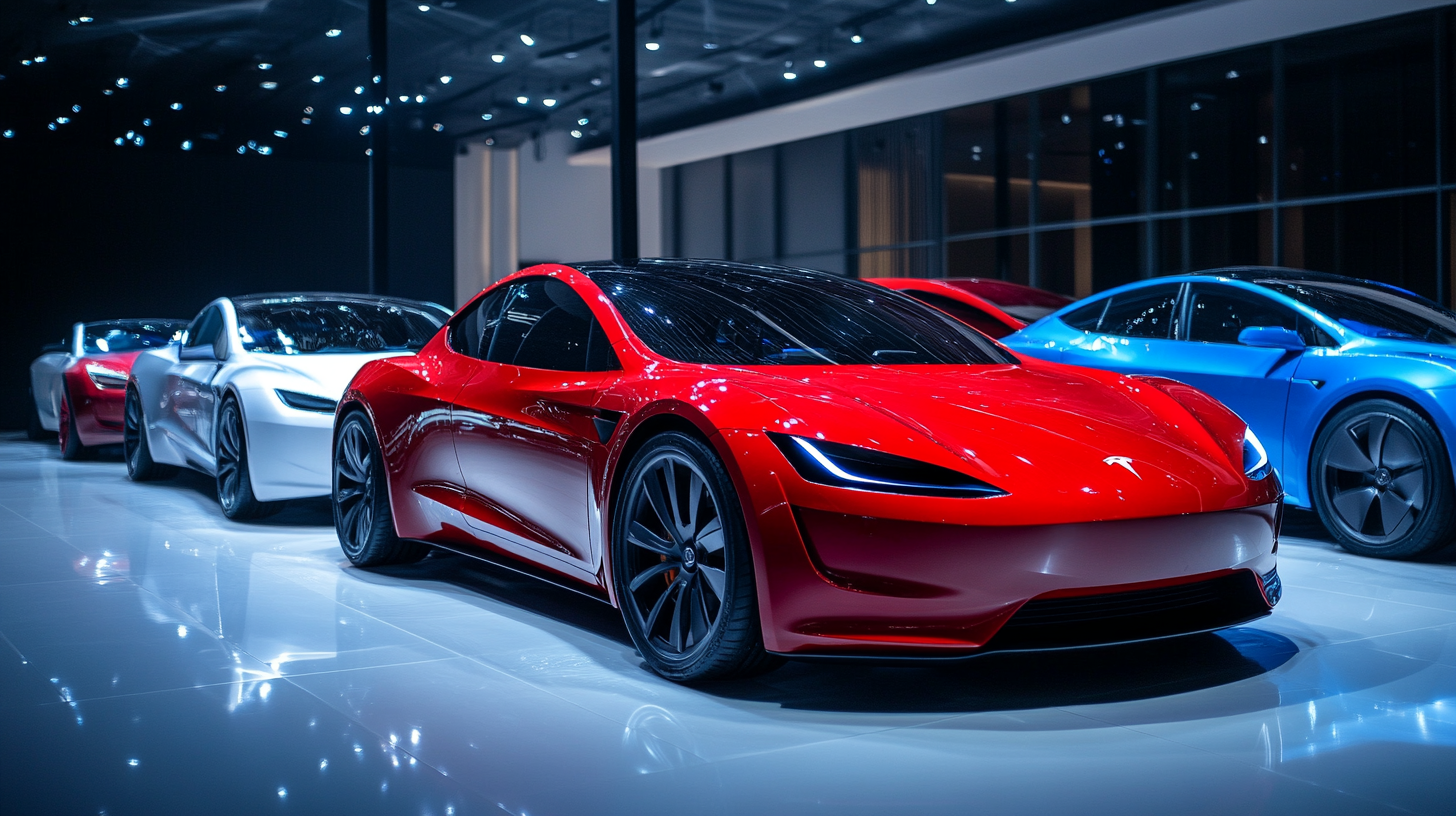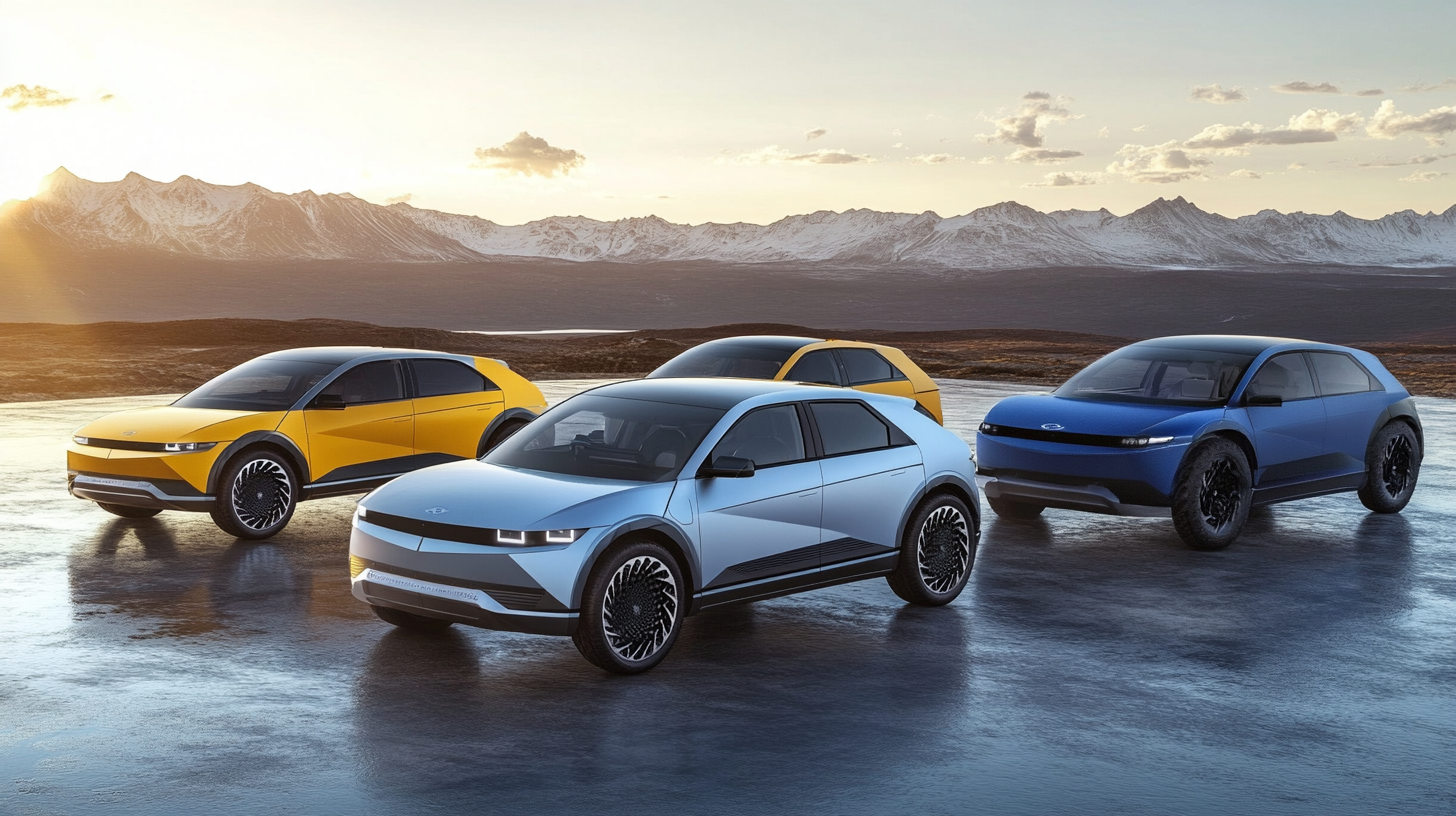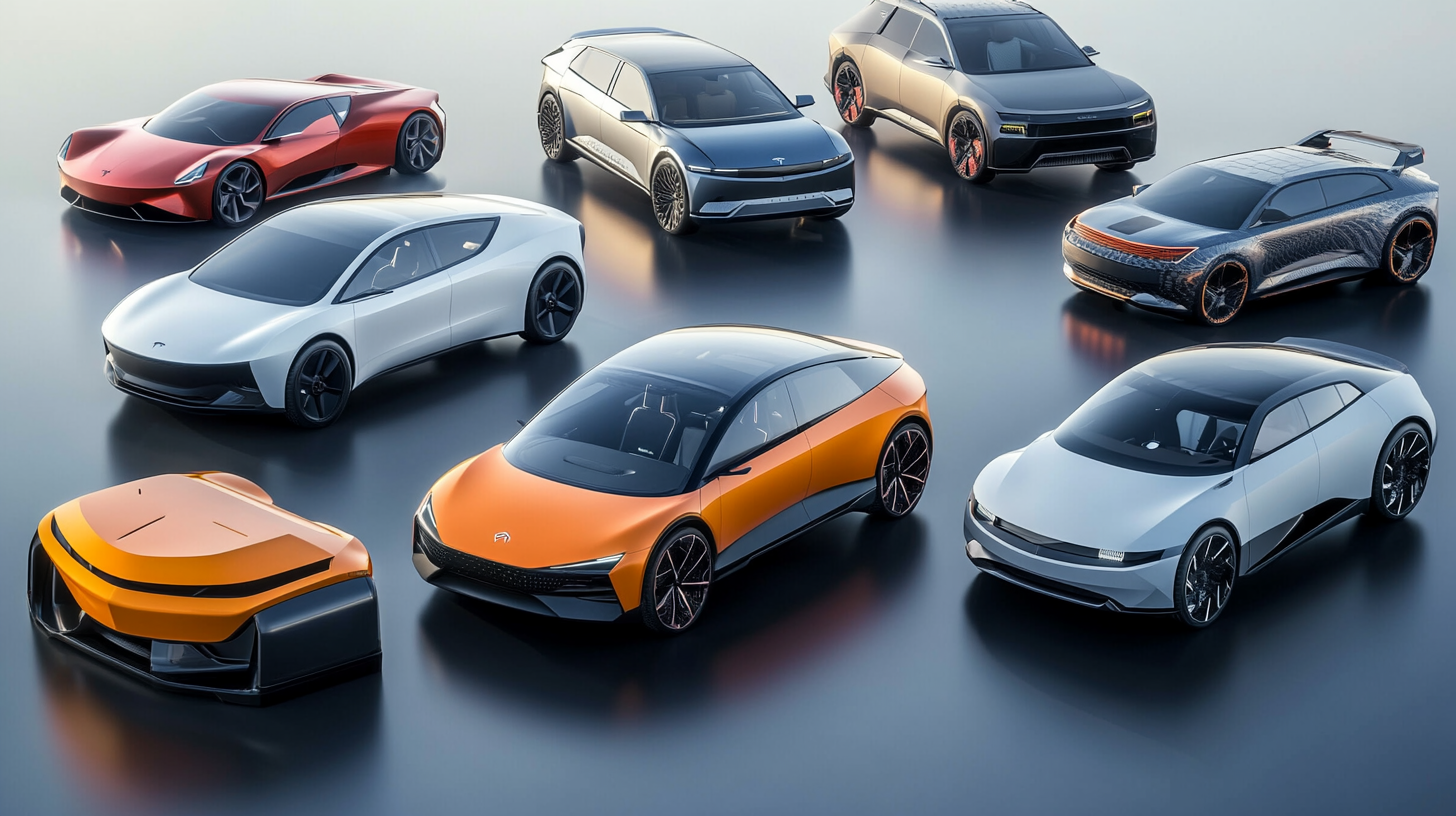Sorry. We did not find anything.
2025 Global Electric Car Brands Overview and Competitive Analysis
The electric vehicle (EV) market is rapidly evolving, with projections indicating that global electric car sales are set to reach approximately 28 million units by 2030, driven primarily by increasing environmental awareness and supportive government policies. In a world where sustainable transportation is no longer a choice but a necessity, various Electric Car Brands are emerging to capture consumer interest and loyalty. According to a report from the International Energy Agency, the number of electric cars on the road surpassed 10 million in 2020, an increase of 43% from the previous year, showcasing the accelerating shift towards electric mobility. As traditional automakers and new entrants alike invest heavily in EV technology, understanding the competitive landscape becomes crucial for stakeholders. This blog aims to provide an overview of the key players in the global electric car market, analyzing their strategies and innovations as we approach 2025, a pivotal year in the quest for a sustainable automotive future.

Global Electric Car Market Trends: Growth Projections for 2025
The global electric car market is poised for significant growth, with projections indicating that the sector will continue its upward trajectory through 2025. Recent analyses highlight an expanding demand driven by an increasing consumer shift towards environmentally friendly transportation options. By 2025, it is anticipated that the electric vehicle segment will witness remarkable advancements in battery technology, enhancing efficiency and reducing costs, thus making electric cars more accessible to the general public.
As part of this ongoing trend, key factors contributing to the rise in electric car popularity include government incentives for EV adoption, a surge in charging infrastructure, and heightened awareness around sustainability. According to market insights, the global electric vehicle market is expected to experience considerable expansion, reflecting a compound annual growth rate (CAGR) of over 20% as more consumers seek zero-emission alternatives. This shift not only represents a move towards greener mobility but also signifies a transformative evolution of the automotive industry, aligning business strategies with sustainable development goals.
2025 Global Electric Car Brands Overview
This pie chart represents the projected market share of various electric car brands in 2025. The data is based on current growth trends and market analysis.
Key Players in the Electric Vehicle Space: Market Share Analysis
The global electric vehicle (EV) market is rapidly evolving, with significant shifts in market share among key players. In 2024, the solid-state battery market is projected to be valued at approximately $98.96 million, increasing to an estimated $1.19 billion in 2025, and further growing to $1.36 billion by 2032. This surge emphasizes the escalating demand for cutting-edge battery technologies, pivotal for enhancing EV performance and sustainability.
China has emerged as a formidable force in the EV landscape, with domestic manufacturers drastically reshaping the market dynamics. Once a goldmine for foreign traditional carmakers, the Chinese market has transitioned into a challenging environment where competition is fierce. Local brands are not only capturing significant market shares but are also challenging the profitability of established foreign contenders, making it increasingly difficult for them to retain their foothold.
In Europe, the EV charging station market is expected to experience robust growth, with a valuation of $10.8 billion in 2024 and a projected CAGR of 29.3% leading to a staggering $144.9 billion by 2034. This expansion is driven by the increasing need for widespread charging infrastructure to support the growing electric vehicle fleet. As these key players continue to evolve and adapt to market demands, the global electric vehicle ecosystem is on the cusp of significant transformation.

Technological Advances Driving the Electric Car Industry
The electric car industry is experiencing a revolutionary transformation, driven largely by rapid technological advancements. Innovations in battery technology, such as solid-state batteries, promise significantly increased energy density, faster charging times, and improved safety, ultimately enabling electric vehicles (EVs) to deliver greater range and convenience. As manufacturers invest heavily in research and development, the focus has shifted towards creating batteries that are not only more efficient but also more sustainable, addressing concerns around eco-friendliness and resource depletion.
Another area of significant progress is in the realm of autonomous driving technology. Companies like Tesla, Waymo, and several traditional automakers are racing to integrate advanced driver-assistance systems (ADAS) into their electric vehicles. These systems leverage artificial intelligence and machine learning to enhance safety and convenience, paving the way for fully autonomous driving experiences. As connectivity improves, vehicles will increasingly communicate with each other and surrounding infrastructure, optimizing traffic flow and minimizing congestion, further enhancing the appeal of electric cars to consumers worldwide. Together, these technological advancements are redefining the landscape of the electric vehicle market, setting the stage for a formidable competitive environment in 2025 and beyond.

Sustainability and Environmental Impact of Electric Vehicles in 2025
As we approach 2025, the sustainability and environmental impact of electric vehicles (EVs) continue to be pivotal in addressing global climate change challenges. According to a recent report by the International Energy Agency (IEA), the number of electric vehicles on the road is expected to exceed 300 million by 2030, significantly reducing greenhouse gas emissions. This shift underscores the automobile industry's commitment to sustainable practices, with reputable brands increasingly adopting eco-friendly manufacturing processes. For instance, Tesla has pledged to source lithium for batteries from sustainable sources, aiming to minimize the environmental footprint of its production lines.
Moreover, a study conducted by the Transport & Environment organization reveals that electric cars can be up to 70% cleaner over their lifetime compared to traditional gasoline vehicles, particularly as the energy grid shifts towards renewable sources. By 2025, it is projected that 50% of the world's electricity will be generated from renewables, further enhancing the green credentials of EVs. This evolution not only enhances the environmental benefits of electric vehicles but also sets a new standard for future automotive designs and policies. As consumer awareness grows, the demand for sustainable electric vehicles is likely to rise, solidifying their role in a greener future.
2025 Global Electric Car Brands Overview
This chart illustrates the competitive landscape of electric vehicle brands in 2025, highlighting their respective market shares. As sustainability continues to be a priority, these brands are making significant strides towards reducing environmental impact.
Consumer Preferences: Factors Influencing Electric Car Purchases
As the demand for electric vehicles (EVs) rises globally, understanding consumer preferences is essential to navigate the evolving automotive landscape. Recent studies underscore various factors influencing the adoption of electric cars, particularly highlighting consumer behavior trends in different markets. For instance, research focusing on Indonesia identifies key determinants that drive consumer intentions to embrace electric vehicles, revealing that perceived benefits such as cost savings on fuel and maintenance play a crucial role in decision-making. Similarly, a study from the University of Surrey emphasizes that past driving experiences significantly shape prospective electric vehicle buyers' intentions, suggesting that familiarity with eco-friendly technologies can enhance consumer confidence in making the switch.
In addition, the Deloitte 2025 Global Automotive Consumer Study illustrates that environmental concerns and governmental incentives are pivotal in shaping consumer purchasing attitudes towards EVs. With the increase in energy prices and growing awareness of climate change, consumers are becoming more inclined to choose electric over traditional combustion engines. Furthermore, an analysis of Vietnam's electric vehicle market indicates that local preferences are being shaped by advancements in technology and the availability of charging infrastructure, indicating that the success of electric cars hinges not just on consumer attitudes but also on the overall market dynamics. These insights reveal the multifaceted nature of consumer preferences in the EV market and highlight the need for manufacturers to align their strategies accordingly.
2025 Global Electric Car Brands Overview and Competitive Analysis - Consumer Preferences: Factors Influencing Electric Car Purchases
| Brand | Model | Price (USD) | Range (miles) | Charging Time (Hours) | Consumer Preference Factor |
|---|---|---|---|---|---|
| Tesla | Model S | $94,990 | 405 | 1.5 | Performance |
| Ford | Mustang Mach-E | $42,895 | 300 | 1.0 | Style |
| Nissan | Leaf | $27,400 | 226 | 0.9 | Affordability |
| Chevrolet | Bolt EV | $31,000 | 259 | 1.5 | Range |
| Volkswagen | ID.4 | $39,995 | 250 | 1.0 | Versatility |
